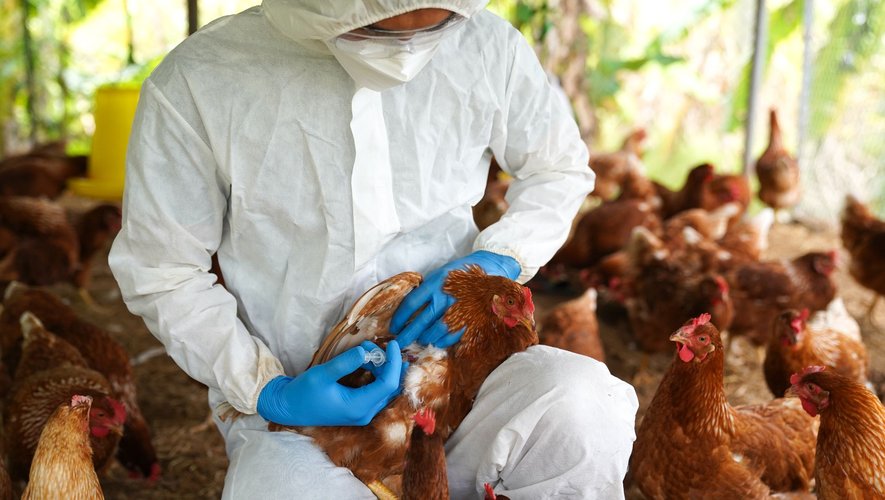The Committee for monitoring and anticipating health risks (Covars) recommends, in a long opinion, a series of measures intended to reduce the risk of contamination of humans by avian flu. No case has, to date, been identified in France.
Will the next pandemic be linked to the transmission of bird flu to humans? This is the scenario feared by Covars, which took up the issue and issued a series of recommendations aimed at reducing the “health risk of bird flu linked to highly pathogenic avian influenza (HPAI, editor’s note) (…) affecting domestic and wild birds and which can be transmitted to humans.”
Why now ? Because after a period of relative calm after “an unprecedented crisis” in 2021-2022 (in France, 21 million poultry had been slaughtered preventively), new outbreaks were discovered in farms in the south-west of France. And that, throughout the world, several cases of transmission of the A (H5N1) virus to humans have been detected: in Spain, the United Kingdom, the United States, Ecuador, China and Vietnam. In Cambodia, a child died from H5N1 in February.
No human-to-human transmission
“Clinical forms ranged from mild or even asymptomatic symptoms, to severe forms with admission to intensive care and death. To date, no human-to-human transmission has been demonstrated”, indicates Public Health France. In our country, no transmission to humans has, to date, been detected.
But the risk is growing, according to Covars, due in particular to “the loss of seasonality of avian infection, the increase in the number of cases on farms, the diversification of wild species affected and the increase in cases in mammals”. But also of climate change and the biodiversity crisis which “modifies the trajectories of wild birds and their resistance to viruses”.
Vaccinate poultry
The body, made up in particular of immunologists, epidemiologists, virologists or infectiologists, has therefore developed a preventive strategy based on four pillars: “vaccination, preventive measures to be applied in farms, animal and human monitoring and research funding on the issue of avian flu and HPAI”.
It therefore encourages “carry out a poultry vaccination strategy as soon as possible”, “extend the recommendation of vaccination against seasonal influenza to people exposed, in contact with birds potentially carrying the virus”, “adapt preventive measures and farm management by seeking alternatives to preventive slaughter” or “compose strategic stocks of pre-pandemic vaccines”.
To note : A livestock vaccination strategy against HPAI, authorized and recommended in 2022 at European level “will soon be finalized in France and should allow the start of preventive vaccination of commercial duck farms in the fall of 2023”says the Covars.

